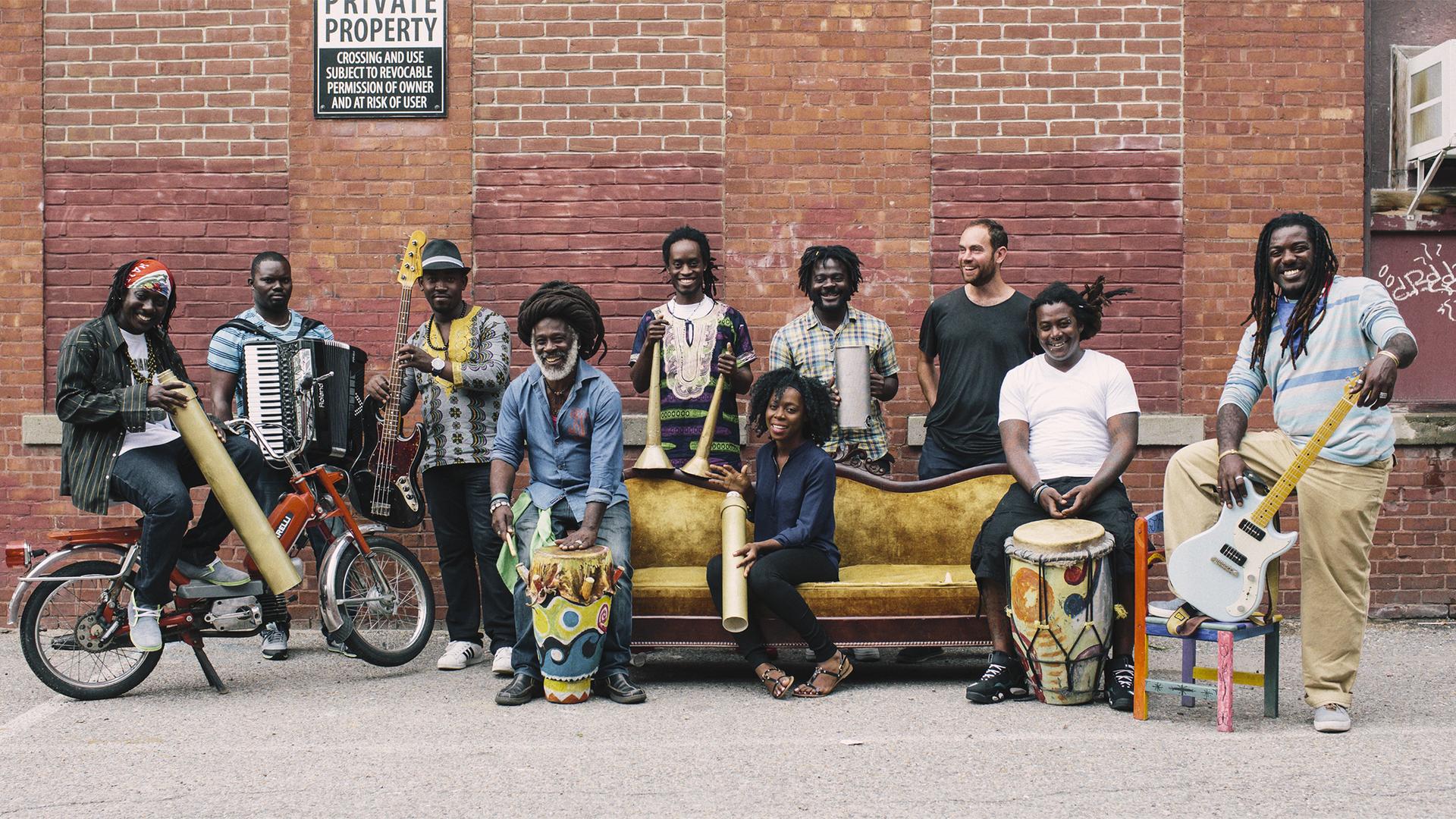The multigenerational band Lakou Mizik’s new album, “Leave the Bones,” is an homage to the group’s native Haiti.
The album, a collaboration with Grammy-winning electronic music artist Joseph Ray, includes singles like “Ogou (Pran Ka Mwen),” “Lamizè Pa Dous” and “Bade Zile,” or “Under the Island,” which aim to reframe — or rather, smash — negative, stereotypical views of Haiti and its culture.
“I think that you cannot describe a country by only what you see on the news,” band member Steeve Valcourt said. “So, what we [are] hoping to do, personally, in ‘Lakou Mizik’ is to show the other side of Haiti, which is the culture, the love, the oneness, you know, that’s the point of it, the beauty of Haiti.”
The band mines the traditional music canon of Haiti and injects it with rhythms from reggae, hip-hop and electronic music.
Ray helped the band find a new sound, Valcourt said.
DJ and producer Ray came to Haiti as a volunteer teacher at the country’s only production and mixing school, Jacmel’s Artists Institute. In Jacmel, Ray said, he stumbled on Lakou Mizik at a tiny beachside club — their sound reminded him of electronic music clubbing.
That’s when Ray saw the potential for blending his own electronic style with Lakou Mizik’s traditional dance music.
Soon enough, Ray and the nine-piece band embarked on a six-year journey to produce “Leave the Bones.”
“We were at the studio, and we started to mix stuff. He had us singing a lot of traditional songs — ceremony songs, voodoo songs, and then see if he [could] blend [them],” Valcourt recounted of the collaboration with Ray. “Then, he sent different demos. And then we were like, ‘Yeah, this is good.’”
Valcourt says that Lakou Mizik’s music can lead to dialogue about the country’s troubled history.
“It’s [a] culture that’s never been really touched to put the word out [about Haiti] directly to people in Haiti and around the world,” Valcourt said. “Religion tried it, politics tried it, the economy tried it. It’s probably culture that we use the least to show what we really are and what we can do.”
Check this Spotify playlist with music from Lakou Mizik — and other artists we have featured on the show.
The story you just read is accessible and free to all because thousands of listeners and readers contribute to our nonprofit newsroom. We go deep to bring you the human-centered international reporting that you know you can trust. To do this work and to do it well, we rely on the support of our listeners. If you appreciated our coverage this year, if there was a story that made you pause or a song that moved you, would you consider making a gift to sustain our work through 2024 and beyond?
